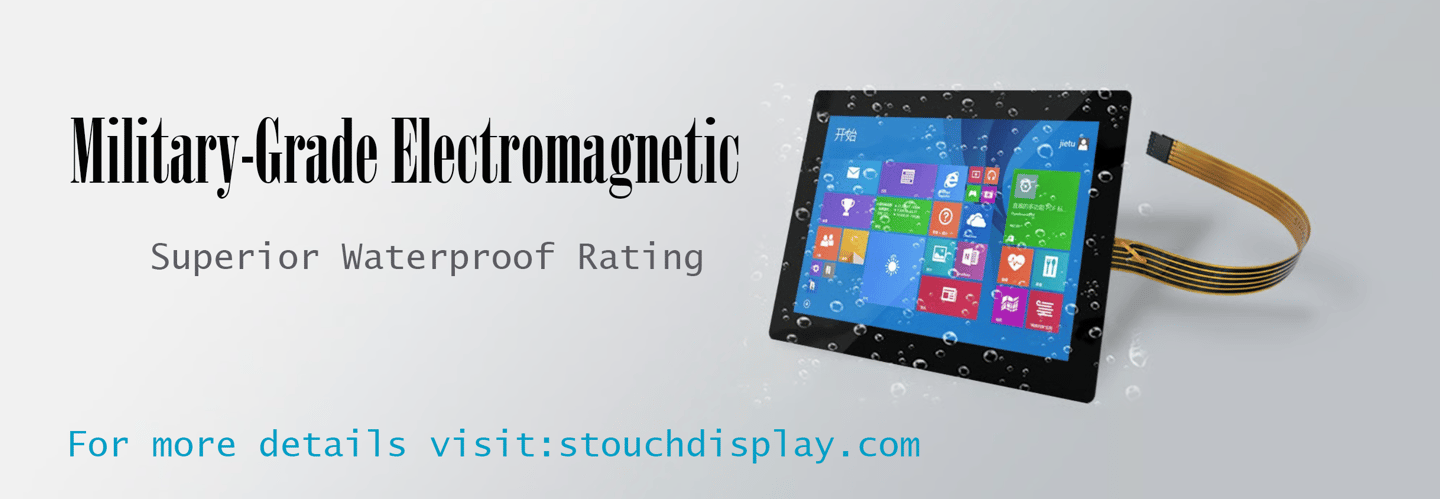A Comprehensive Guide to Choosing Durable Touchscreens for Industrial Applications
12/26/20242 min read


Understanding Industrial Touchscreens
Durable touchscreens, often referred to as industrial-grade touchscreens, are specifically designed to thrive in challenging operational environments. Unlike standard consumer-grade displays, which are built for controlled conditions, industrial touchscreens are engineered to handle extreme temperatures, exposure to dust and moisture, and physical impacts. These specialized displays are essential in sectors such as manufacturing, logistics, medical devices, and outdoor field operations where reliability and robustness are paramount.
Industrial-grade touchscreens typically feature reinforced protective casings crafted from materials like polycarbonate or hardened glass. This construction shields the display from damage caused by shocks, vibrations, or direct impacts. Additionally, these devices often boast high IP (Ingress Protection) ratings, ensuring resistance to dust, water, and other external elements. For example, an IP67-rated touchscreen can withstand submersion in water, making it ideal for wet or humid environments.
These touchscreens also excel in extreme temperatures, functioning seamlessly in both freezing and scorching conditions. Enhanced touch sensitivity ensures smooth operation even when users are wearing gloves or working in damp environments, making them indispensable for industrial applications requiring precision and reliability.
Key Features of Industrial-Grade Touchscreens
When selecting a durable touchscreen for industrial use, consider the following critical features to maximize performance and longevity:
Screen Size and Visibility
Large displays improve readability and interaction in data-intensive applications.
High-brightness or transflective displays reduce glare for outdoor use.
Material Durability
Reinforced glass resists scratches and impacts.
Anti-glare coatings and chemical resistance add to the screen’s functionality.
Temperature Tolerance
Devices should operate reliably in extreme heat or cold.
Thermal shock resistance is essential for environments with rapid temperature changes.
Touch Sensitivity
Advanced touch technology ensures responsiveness, even with gloves.
Multi-touch support improves efficiency in applications requiring gestures.
IP Ratings
Ensure adequate protection against dust and water ingress based on the application’s demands.
Evaluating Compatibility with Industrial Environments
For industrial operations, environmental factors such as temperature, moisture, and vibration significantly influence the performance of touchscreen devices.
Temperature Ranges: Choose displays that can operate in extreme conditions, such as high heat in outdoor environments or subzero temperatures in refrigerated warehouses.
Moisture Protection: High humidity or liquid exposure necessitates devices with robust water resistance, indicated by IP ratings.
Vibration Resistance: For heavy machinery environments, screens must endure continuous vibrations without loss of performance.
Chemical Exposure: Industrial applications often involve corrosive substances, so chemical-resistant materials are a must.
Cutting-Edge Technologies in Durable Touchscreens
Emerging trends in touchscreen technology are shaping the future of industrial displays:
Optical Bonding Technology: This technique uses liquid adhesives to eliminate the air gap between the screen layers, enhancing clarity, durability, and touch sensitivity. Optical bonding improves sunlight readability and prevents internal condensation, making it ideal for outdoor and medical devices.
IoT Integration: Rugged touchscreens integrated with IoT technology enable real-time monitoring and analytics, streamlining operations in industries like logistics and manufacturing.
Multi-Modal Interaction: Features such as gesture control, voice activation, and haptic feedback are becoming more common, improving usability and operational efficiency.
Energy Efficiency: Low-power touchscreens reduce energy consumption, benefiting environments where power efficiency is critical.
Choosing Stouch Displays for Industrial Solutions
At Stouch Displays, we specialize in designing high-performance touchscreens tailored for industrial and medical environments. Our products incorporate advanced features like optical bonding, high IP ratings, and extreme temperature tolerance to ensure seamless operation in the harshest conditions.
Visit stouchdisplay.com to explore our range of durable touchscreens designed for industrial applications. Discover how our technology can enhance your operational efficiency, reliability, and user experience.
Boost Your Industrial Efficiency
Durable touchscreens have become an integral part of industrial operations. Whether used in manufacturing plants, field service, or outdoor kiosks, they deliver unmatched reliability and performance. By investing in advanced touchscreen technology, businesses can achieve higher productivity, reduce downtime, and stay competitive in a rapidly evolving industrial landscape.
Display Solutions
Custom touch displays for industrial and medical solutions Specific to Your Needs.
Quality First
Expert in touch panels
15 Years in Touch Solutions | Your One-Stop-Manufacturer | STOUCH © 2024. All rights reserved.
